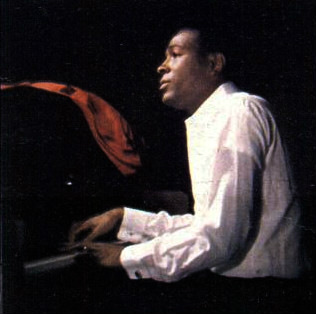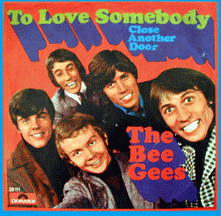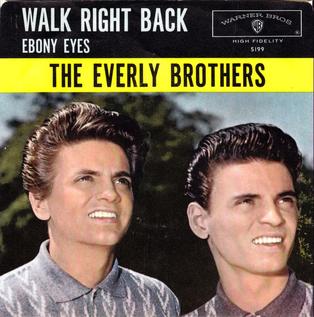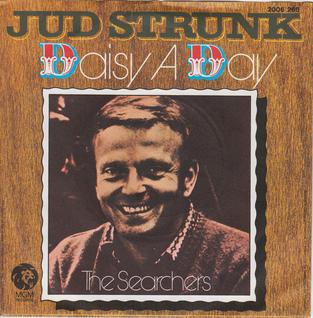
"You've Got a Friend" is a 1971 song written by Carole King. It was first recorded by King and included in her album Tapestry. Another well-known version is by James Taylor from his album Mud Slide Slim and the Blue Horizon. His was released as a single in 1971, reaching number 1 on the Billboard Hot 100 and number 4 on the UK Singles Chart. The two versions were recorded simultaneously in 1971 with shared musicians.
"Killing Me Softly with His Song" is a song composed by Charles Fox with lyrics by Norman Gimbel. The lyrics were written in collaboration with Lori Lieberman after she was inspired by a Don McLean performance in late 1971. Lieberman released her version of the song in 1972, but it did not chart. In 1973 it became a number-one hit in the United States, Australia and Canada for Roberta Flack, also reaching number six in the UK Singles Chart. In 1996, Fugees recorded the song with Lauryn Hill on lead vocals, their version became a number-one hit in twenty countries. The version by Flack won the 1974 Grammy for Record of the Year and Best Female Pop Vocal Performance, and the version by Fugees won the 1997 Grammy for Best R&B Performance by a Duo or Group with Vocal. The song has been covered by many other artists. Both versions by the Fugees and Roberta Flack were placed on the 2021 revised list of Rolling Stone's 500 Greatest Songs of All Time.

"Delta Dawn" is a song written by former child rockabilly star Larry Collins and country and western songwriter Alex Harvey, best known as a 1972 top ten country hit for Tanya Tucker and a 1973 number one hit for Helen Reddy.

"You Don't Know Me" is a song written by Cindy Walker based on a title and storyline given to her by Eddy Arnold in 1955. "You Don't Know Me" was first recorded by Arnold that year and released as a single on April 21, 1956 on RCA Victor. The best-selling version of the song is by Ray Charles, who took it to number 2 on the Billboard Hot 100 chart in 1962, after releasing the song on his number 1 album Modern Sounds in Country and Western Music. The first version of the song to make the Billboard charts was by Jerry Vale in 1956, peaking at number 14 on the pop chart. Arnold's version charted two months later, released as an RCA Victor single, 47-6502, backed with "The Rockin' Mockin' Bird", which reached number 10 on the Billboard country chart. Cash Box magazine, which combined all best-selling versions at one position, included a version by Carmen McRae that never appeared in the Billboard Top 100 Sides listing.
Leon Ware was an American songwriter, producer, composer, and singer. Besides a solo career as a performer, Ware was best known for producing hits for other artists including Michael Jackson, Quincy Jones, Maxwell, Minnie Riperton and Marvin Gaye, co-producing the latter's album, I Want You.

American music artist Marvin Gaye released 25 studio albums, four live albums, one soundtrack album, 24 compilation albums, and 83 singles. In 1961 Gaye signed a recording contract with Tamla Records, owned by Motown. The first release under the label was The Soulful Moods of Marvin Gaye. Gaye's first album to chart was a duet album with Mary Wells titled Together, peaking at number forty-two on the Billboard pop album chart. His 1965 album, Moods of Marvin Gaye, became his first album to reach the top ten of the R&B album charts and spawned four hit singles. Gaye recorded more than thirty hit singles for Motown throughout the 1960s, becoming established as "the Prince of Motown". Gaye topped the charts in 1968 with his rendition of "I Heard It Through the Grapevine", while his 1969 album, M.P.G., became his first number one R&B album. Gaye's landmark album, 1971's What's Going On became the first album by a solo artist to launch three top ten singles, including the title track. His 1973 single, "Let's Get It On", topped the charts while its subsequent album reached number two on the charts becoming his most successful Motown album to date. In 1982, after 21 years with Motown, Gaye signed with Columbia Records and issued Midnight Love, which included his most successful single to date, "Sexual Healing". Following his death in 1984, three albums were released posthumously while some of Gaye's landmark works were re-issued.

Canadian singer Shania Twain has released five studio albums, two compilation albums, three remix albums, one box set, two live albums, 43 singles, 38 music videos, four promotional singles, and made six guest appearances. Twain's repertoire has sold over 34 million albums in the United States alone, placing her as the top-selling female artist in country music. Moreover, with 48 million copies shipped, she is ranked as the 26th best-selling artist overall in the US, tying with Kenny G for the spot. She is also recognized as one of the best-selling music artists in history, selling over 100 million records worldwide and thus becoming the top-selling female artist in country music ever.

The Sutherland Brothers were a Scottish folk and soft rock duo. From 1973 to 1978, they performed with rock band Quiver, and recorded and toured as Sutherland Brothers & Quiver. Under this combined moniker, the group recorded several albums and had a significant international hit single with the song "Arms of Mary" in 1976. In North America, they are primarily known for their 1973 single "(I Don't Want to Love You But) You Got Me Anyway".

"How Long" is the debut single by the English band Ace, from their 1974 debut album Five-A-Side. It reached No. 3 in the US and Canadian charts, and No. 20 on the UK Singles Chart.

"Two Out of Three Ain't Bad" is a power ballad performed by the American musician Meat Loaf. It is a track off his 1977 album Bat Out of Hell, written by Jim Steinman. It reached #11 on the Billboard Hot 100 and earned a million-selling Gold single from the RIAA, eventually being certified platinum. It remains his second highest-charting hit in the US, behind "I'd Do Anything for Love ", and stands as one of his career signature tunes, still enjoying recurrent airplay.

The discography of American pop rock duo Sonny & Cher consists of five studio albums, four compilation albums, one soundtrack album, two live albums and twenty-one singles. Sonny and Cher had released three albums and one single which achieved Gold status in the United States: Look At Us, Sonny & Cher Live, All I Ever Need Is You and I Got You babe. In the decade they spent together, Sonny and Cher sold over 40 million records worldwide.

"To Love Somebody" is a song written by Barry and Robin Gibb. Produced by Robert Stigwood, it was the second single released by the Bee Gees from their international debut album, Bee Gees 1st, in 1967. The single reached No. 17 in the United States and No. 41 in the United Kingdom. The song's B-side was "Close Another Door". The single was reissued in 1980 on RSO Records with "How Can You Mend a Broken Heart" as its flipside. The song ranked at number 94 on NME magazine's "100 Best Tracks of the Sixties". It was a minor hit in the UK and France. It reached the top 20 in the US. It reached the top 10 in Canada.

Another Step is the fifth studio album by British pop singer Kim Wilde, released in November 1986. The album contained her comeback worldwide hit "You Keep Me Hangin' On", which reached No. 1 in the US, as well as the UK top 10 hit "Another Step " and "Say You Really Want Me".

"Walk Right Back" is a 1961 song by Sonny Curtis that was recorded by The Everly Brothers, and went to No. 7 on the U.S. Billboard Hot 100 chart. Overseas, the song went to No. 1 on the UK Singles Chart for three weeks. Originally it was the B-side, then it was changed to the A-side.

"I'd Love You to Want Me" is a song by American singer-songwriter Lobo. It was released in the fall of 1972 as the second single from his second album Of a Simple Man.

Quiver were a British rock band formed in 1970 by Tim Renwick and Cal Batchelor. In December 1972, they teamed up with the Sutherland Brothers and became known as Sutherland Brothers & Quiver, releasing soft rock music and achieving success with the songs "(I Don't Want to Love You But) You Got Me Anyway" and "Arms of Mary", a No. 5 UK hit.

"Me and You and a Dog Named Boo" is the 1971 debut single by Lobo. Written by Lobo under his real name Kent LaVoie, it appears on the Introducing Lobo album.
"Don't Expect Me to Be Your Friend" is a song written and recorded by American singer Lobo that appears on his album Of a Simple Man. Released in 1972, the single peaked at No. 8 on the US Billboard Hot 100 and was his third of four songs to top the Billboard Easy Listening chart, where it had a two-week stay at No. 1. Internationally, it peaked at No. 4 in Australia, Canada, and New Zealand.
"Arms of Mary" is a song written by Iain Sutherland and performed by Sutherland Brothers and Quiver. It was a 1976 international hit single for the band; the Glasgow Herald in its obituary for Iain Sutherland described "Arms of Mary" as "a plaintive and radio-friendly folk-rock ballad in which the narrator reminisces over the woman he first made love to."

"Daisy a Day" is a song written and performed by Jud Strunk. It reached #4 on the U.S. adult contemporary chart, #14 on the Billboard pop chart, and #33 on the U.S. country chart in 1973. In Canada, it reached #3 on the pop chart, #5 on the adult contemporary chart, and #18 on the country chart. In Australia the song reached #1. The song was featured on his 1973 album, Daisy a Day.














